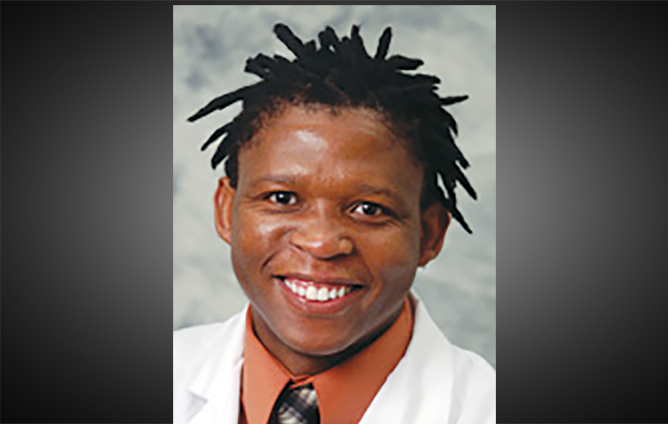
CUSTOMER CHALLENGE
Orthopaedic surgeons are constantly inventing new techniques to more quickly and effectively restore patient health and mobility. Before any restorative technique can be used to treat actual patients, however, someone must assess how it will perform when subjected to the loads, moments, repetitions and natural healing processes of a living, moving person. A thorough understanding of these performance limits is necessary for evaluating the efficacy of new techniques and developing the rehabilitation regimes so critical to the success of shoulder, knee, elbow, ankle or hand surgeries.
Pursuing this understanding has become the specialty of Elifho Obopilwe, a sports medicine research engineer who manages the Human Soft Tissue Research Laboratory, part of the New England Musculoskeletal Institute at the University of Connecticut Health Center. “Simply stated, we provide translational research,” said Obopilwe. “All scientific discovery must be translated into practical application, and that is exactly what we do.”
Since the musculoskeletal system is mechanical in nature, Obopilwe decided that the forces, moments and deflections in the human body would be best modeled via mechanical testing. So his team devises custom mechanical tests on cadaveric specimens to determine the performance characteristics and thresholds of new procedures and constructs. This approach enables a realistic in-situ observation of how surrounding tissues, muscles, bones or tendons will respond to and recover from an experimental surgical procedure. “But in order to be valid,” Obopilwe cautioned, “our testing must be repeatable and precisely mirror real-world physiological situations.”
To succeed in their testing mission, Obopilwe and his team must also be flexible. “Much of what comes into our lab is truly one of a kind,” he said. “We are continually amazed by the innovative ideas we see.”
To meet these seemingly countervailing demands for precision and flexibility, Obopilwe chose to work with MTS when considering new test equipment for his lab.
MTS SOLUTION
When Obopilwe joined the Human Soft Tissue Research Laboratory in 2004, the facility had already been using an MTS electromechanical test system for nearly a decade. The laboratory’s expertise was evolving into other areas of the musculoskeletal system at the time, including those that required higher forces and more complex motions to simulate.
Based on its successful history at the lab, MTS was included in the list of potential vendors for helping the Human Soft Tissue Research Laboratory upgrade to a servohydraulic test system.
“We did look at competitors, but it became clear early in our research that MTS offered the best products and expertise,” Obopilwe said. “And I wouldn’t discover until after we finalized our decision that MTS really shines when it comes to support.”
MTS helped Obopilwe integrate a Bionix® axial/torsion test system, featuring FlexTest® digital controls and Multipurpose TestWare® application software. “Our Bionix system allows us to precisely apply forces and motions across multiple axes and over a high number of cycles,” Obopilwe said. “This capability is highly useful for evaluating how much twisting and axial force a joint can take before failure. It has been especially helpful for evaluating new orthopaedic procedures that involve knees and ankles.”
“And it’s all about flexibility and creativity here,” Obopilwe added. “A job comes in and we have to figure out a way to test it, based on the configuration of the orthopaedic construct and the cadaveric specimen being tested. The MTS system has given us the agility required to respond to all that we see.”
CUSTOMER BENEFITS
In addition to the exceptional performance of the test equipment itself, Obopilwe says he has been impressed with the exceptional support his team has received. “MTS field engineers possess not only a deep understanding of the test equipment and its capabilities, but they also understand the requirements and challenges of the work we’re trying to accomplish,” Obopilwe said. “We consider MTS much more than a vendor. This has been a partnership in the truest sense.
“We don’t take our work lightly, because it has a direct impact on the lives of real people,” Obopilwe added. “MTS has been instrumental in helping us support the development of better outcomes for the full range of musculoskeletal injuries.”

